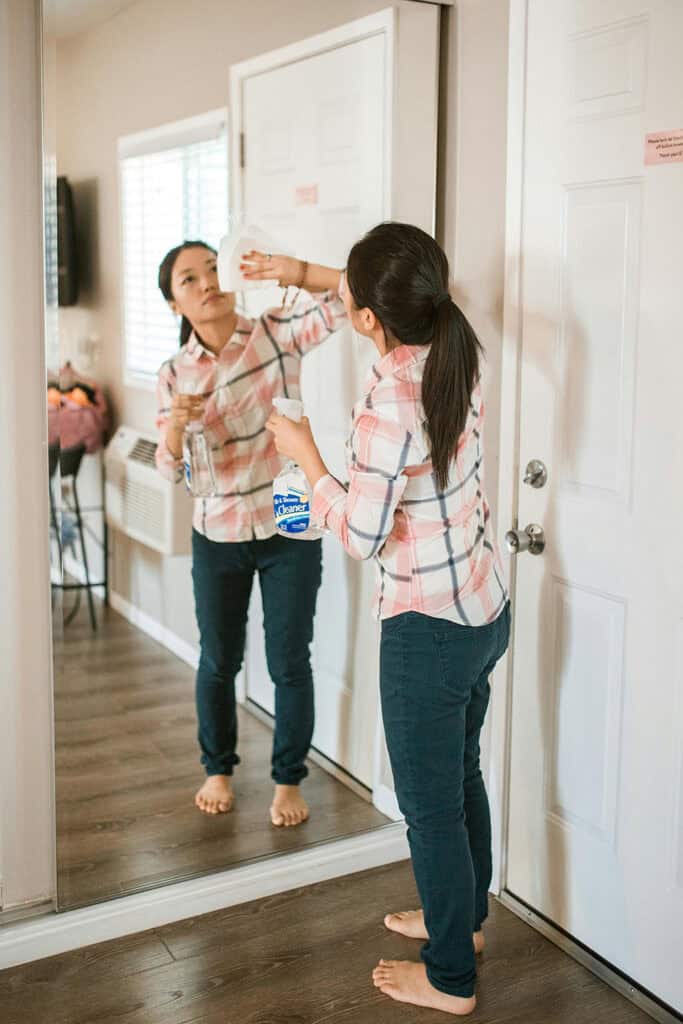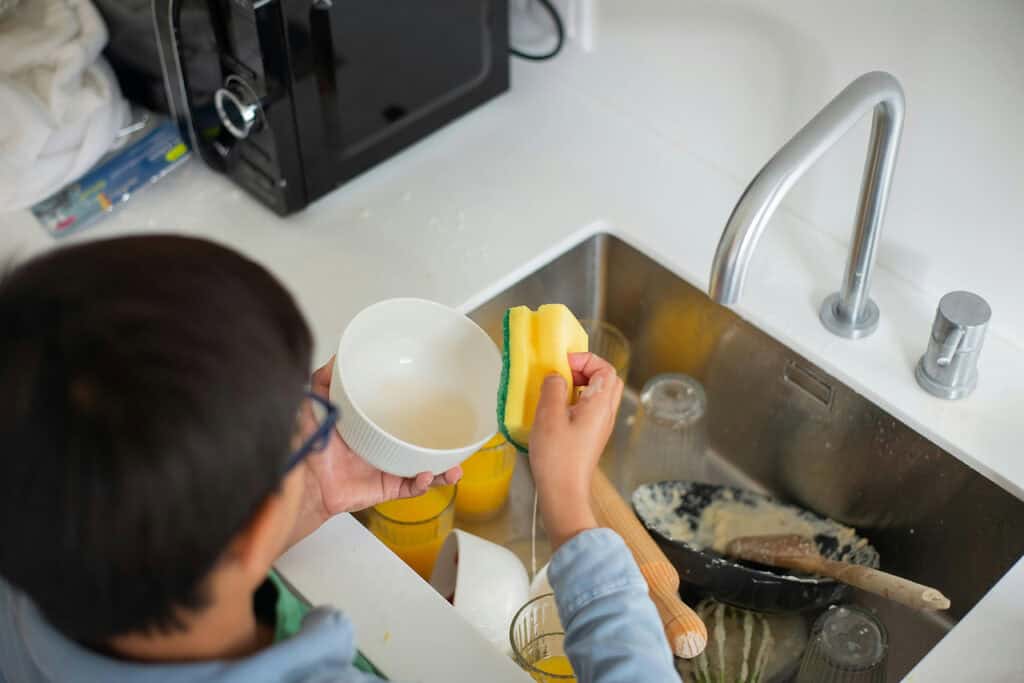

Are you struggling to balance daily chores and responsibilities in your home? You’re not alone in feeling overwhelmed by these essential tasks.
As a busy individual juggling numerous duties, you might find it challenging to distinguish between what needs to be done now and that’s part of a larger life plan. We understand your situation and are here to help. With extensive experience in effective household management, we provide insights to streamline your daily routine.
In this article, we’ll explore the key differences between chores and responsibilities and offer practical strategies for managing both efficiently.
Read on to discover actionable tips that can transform your approach and simplify your life. By following our guide, you’ll gain clarity and control over your tasks, leading to a more organized and fulfilling life.
- 1. Defining Chores and Responsibilities
- 2. Differences Between Chores and Responsibilities
- 3. The Importance of Chores in Daily Life
- 4. The Importance of Responsibilities
- 5. Age-Appropriate Chores and Responsibilities
- 6. Strategies for Assigning Chores and Responsibilities
- Chores vs Responsibilities: A Recap
Here are 6 key distinctions between chores and responsibilities:
- Routine Tasks vs. Broader Obligations: Chores are daily or weekly tasks like washing dishes or taking out the trash, while responsibilities include larger duties such as managing finances or maintaining relationships.
- Assigned vs. Self-Initiated: Chores are often assigned by parents or managers, whereas responsibilities typically involve self-initiation and personal commitment.
- Short-Term vs. Long-Term: Chores are usually short-term tasks requiring immediate attention, whereas responsibilities are ongoing and contribute to long-term goals.
- Immediate Feedback vs. Gradual Impact: Chores offer immediate results, such as a clean kitchen, while responsibilities have a gradual impact, such as developing strong work ethics or achieving career milestones.
- External vs. Internal Motivation: Chores are often motivated by external factors like rewards or consequences, while responsibilities are driven by internal values and personal growth.
- Individual vs. Collective Effort: Chores often benefit individuals directly, while responsibilities, such as family care or community service, often benefit a larger group or society.
See also Career or Relationship: 6 Steps for Finding a Right Balance
1. Defining Chores and Responsibilities

Defining chores and responsibilities is crucial for a child’s development and helping a strong work ethic. Chores are routine tasks assigned to children around the house, such as cleaning their room or washing dishes.
These tasks teach kids the importance of contributing to the family and building a sense of personal responsibility. On the other hand, responsibilities encompass a broader range of duties, often involving more significant personal and family obligations.
Examples include taking care of pets, completing homework, or helping siblings. While chores are specific tasks, responsibilities help children develop accountability and reliability, essential traits for their growth and future job duties.
2. Differences Between Chores and Responsibilities

Chores are tasks assigned to children to help around the house, teaching them life skills and contributing to family life. Responsibilities, however, extend beyond household tasks and encompass personal accountability and decision-making for all ages.
Adults and kids alike must understand the difference: while chores might be done for an allowance or reward, responsibilities help in life planning and developing a strong work ethic. Responsibilities require commitment and don’t have a set break or pay.
Here are the differences:
- Nature of Tasks
- Chores: Routine household tasks such as cleaning, washing dishes, or taking out the trash.
- Responsibilities: Broader duties that include personal accountability and decision-making in various aspects of life.
2. Purpose
- Chores: Teach children life skills and contribute to family life.
- Responsibilities: Develop a strong work ethic and life planning skills for all ages.
3. Rewards
- Chores: Often come with rewards like allowance or privileges.
- Responsibilities: Typically, they have no direct rewards; they build character and reliability.
4. Scope
- Chores: Limited to household tasks.
- Responsibilities: Encompass both personal and professional duties.
5. Age Range
- Chores: Usually assigned to children.
- Responsibilities: Applicable to all ages, including adults.
6. Commitment
- Responsibilities: Ongoing and require continuous effort and dedication.
- Chores: Completed regularly and can be done quickly.
3. The Importance of Chores in Daily Life

Chores play a vital role in daily life, teaching children and teenagers personal responsibility and helping a strong work ethic. By participating in tasks around the house, kids learn the value of contributing to their own homes.
Chores for teenagers, in particular, help prepare them for future responsibilities. Parents can use goal-setting books to outline clear expectations and manage extra chores.
This practice not only aids in personal development but also builds a sense of accomplishment. Overall, involving children in chores equips them with essential life skills, making them well-prepared for adulthood and instilling a sense of duty.
Here are 10 Daily Chores List examples:
- Completing Homework Assignments: Ensuring homework assignments are done reinforces school lessons and fosters academic discipline.
- Setting the Kitchen Table: Preparing the kitchen table for meals ensures a pleasant dining experience and teaches children to contribute to the household routine.
- Washing Dishes: Cleaning dishes after meals maintains a tidy kitchen and instills good hygiene habits.
- Preparing School Lunches: Making school lunches helps children learn to plan and prepare nutritious meals.
- Cooking Dinner: Involving kids in cooking dinner fosters independence and culinary skills.
- Cleaning Windows: Cleaning windows keeps the house bright and enhances the overall appearance.
- Laundry: Washing and folding clean clothes teaches responsibility and organizational skills.
- Tidying Toys: Putting toys away keeps the living areas clean and clutter-free.
- Taking Out the Trash: Disposing of trash maintains hygiene and prevents unpleasant odors.
- Making Beds: Making the bed each morning sets a productive tone for the day.
See also Life Planning Tools: 10 Must-Have Items for a Productive Life Plan
4. The Importance of Responsibilities

Responsibilities in daily life are crucial for maintaining wellness and achieving a healthy work-life balance. Being responsible helps individuals manage their time effectively, meet deadlines, and fulfill commitments.
This helps a sense of personal responsibility and reliability, which is essential for personal and professional growth. By handling responsibilities, individuals develop discipline, build trust with others, and contribute positively to their communities.
Ultimately, embracing responsibilities leads to a more balanced, productive, and fulfilling life.
Here are 7 Responsibilities in Daily Life
- Time Management: Planning and prioritizing tasks help in managing daily activities efficiently and reduce stress.
- Managing Finances: Keeping track of expenses, budgeting, and saving for future needs ensures financial stability and security.
- Maintaining Health: Regular exercise, eating a balanced diet, and attending medical check-ups contribute to overall wellness.
- Work Commitments: Meeting deadlines, attending meetings, and performing job duties efficiently support professional growth and work-life balance.
- Family Responsibilities: Spending quality time, supporting family members, and taking care of children foster strong family bonds and personal responsibility.
- Personal Development: Pursuing education, hobbies, and self-improvement activities enhance skills and personal fulfillment.
- Social Obligations: Maintaining friendships, helping neighbors, and participating in community events build a supportive social network.
5. Age-Appropriate Chores and Responsibilities

Age-appropriate chores and responsibilities are essential for teaching children valuable life skills and a sense of responsibility. For toddlers aged 0–2, simple tasks like putting away toys and wiping spills are suitable. As children grow, weekly chores list can include setting the table or sorting laundry.
For older kids, responsibilities might involve washing dishes or helping with meal preparation. Encouraging kids to contribute to household duties not only teaches them practical skills but also helps them understand the importance of teamwork and personal responsibility.
Parents should adjust chores based on the child’s age and abilities, creating a balanced approach to chores that prepares them for future independence.
Here are examples of age-appropriate chores and responsibilities for both children and adults:
- Ages 0–2:
- Putting Away Toys: Simple task to help with organization.
- Wiping Spills: Use a damp cloth to clean small spills.
2. Ages 3–5:
- Setting the Table: Placing utensils and napkins on the table.
- Sorting Laundry: Helping to sort clothes by color or type.
3. Ages 6–8:
- Feeding Pets: Measuring and providing pet food.
- Making the Bed: Straightening sheets and arranging pillows.
4. Ages 9–12:
- Washing Dishes: Cleaning dishes under supervision.
- Helping with Meal Prep: Chopping vegetables or stirring ingredients.
5. Ages 13–17:
- Doing Laundry: Washing, drying, and folding clothes.
- Cleaning Own Bathroom: Scrubbing sinks, toilets, and mirrors.
6. Adults:
- Household Cleaning: Vacuuming, dusting, and mopping floors.
- Grocery Shopping: Planning meals and purchasing groceries.
- Bill Management: Paying bills and managing household finances.
- Meal Planning and Cooking: Preparing nutritious meals for the family.
- Yard Work: Mowing the lawn, gardening, and maintaining outdoor spaces.
These responsibilities help maintain a functional and organized household and contribute to personal growth and independence at all life stages.
6. Strategies for Assigning Chores and Responsibilities

Highlight the importance of family bonding by involving everyone in chore assignments. Discuss tasks openly and set clear expectations. Rotate responsibilities to ensure fairness. Use family bonding activities to make chores enjoyable, helping teamwork and communication.
This approach strengthens relationships and ensures a balanced contribution from all family members.
Here are 6 strategies for assigning chores and responsibilities:
- Discuss and Assign Together: Involve family members in the discussion to ensure everyone understands and agrees on their tasks. This collaborative approach fosters a sense of responsibility and inclusivity.
- Set Clear Expectations: Clearly outline what each chore entails and the expected outcomes. This reduces confusion and helps everyone know exactly what is required.
- Rotate Responsibilities: Change chores periodically to prevent monotony and ensure everyone learns different skills. Rotation helps maintain fairness and keeps tasks from becoming burdensome.
- Use a Chore Chart: Create a visual chore chart to track who is responsible for what and when. This helps in organizing tasks and provides a visual reminder of duties.
- Reward and Acknowledge: Recognize and reward completed tasks to motivate family members. Acknowledging efforts encourages continued participation and helps reinforce positive behavior.
See also How to Set Career Goals: 10 Essential Steps to Career Success
Chores vs Responsibilities: A Recap
In conclusion, understanding the distinction between chores and responsibilities is crucial for a well-functioning household and nurturing personal growth. Chores, such as washing dishes or putting away dirty clothes, are specific tasks that contribute to maintaining the home.
Responsibilities, on the other hand, involve broader duties and life skills, such as money management and personal accountability.
For families, it’s essential to encourage children from a young age to engage in both chores and responsibilities, as this promotes a strong work ethic and prepares them for adult life.
By teaching kids to handle their own laundry and contribute to household tasks, parents help them develop valuable life skills. Open communication, consistent routines, and positive reinforcement will guide them to balance their tasks effectively, ultimately helping a sense of ownership and preparedness for future challenges.


